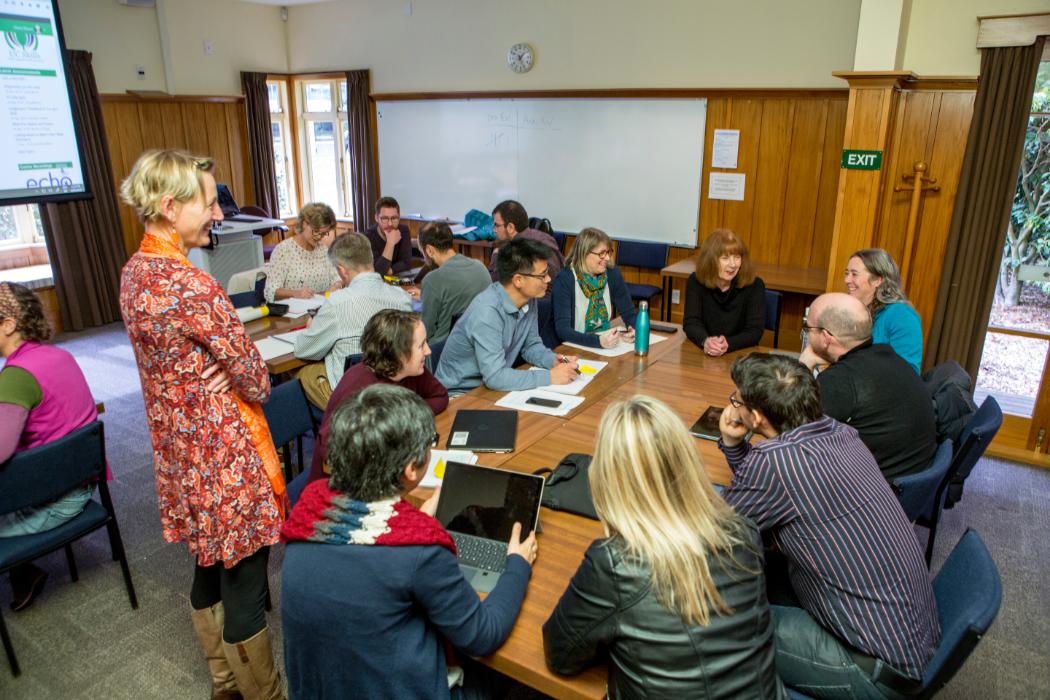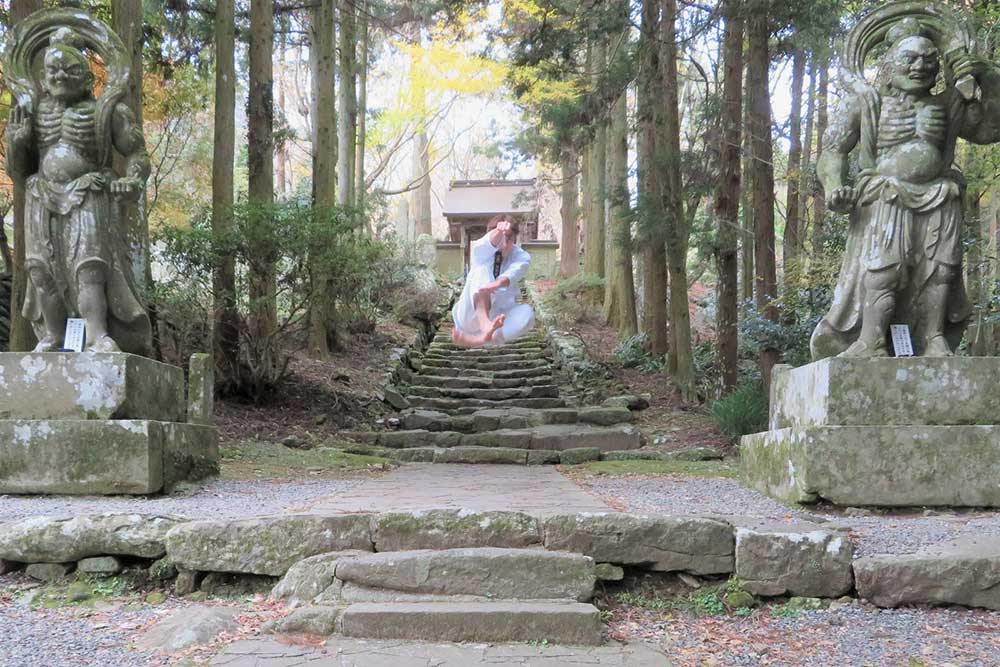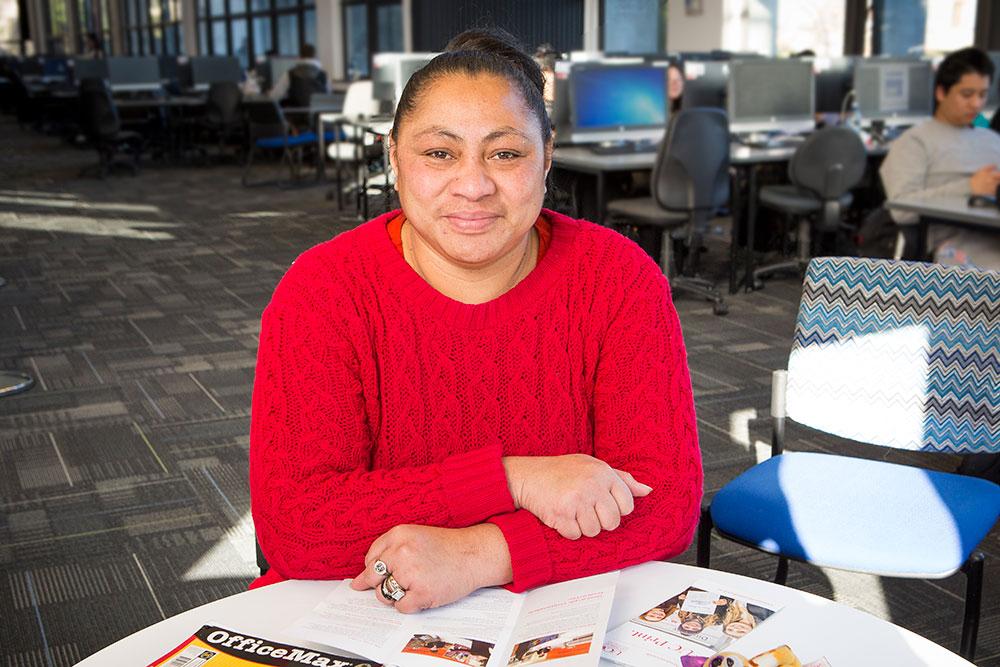Studying for an Education major or minor will enable you to develop your skills and abilities as an individual learner, will help you to understand how people learn and also analyse the politics of contemporary education issues in society.
Everybody has a view of education, but students of education base their views on the best educational scholarship and research. Education draws on a range of disciplines and seeks to understand how people learn and the role of education in human societies.
Is Education for you?
Education asks questions such as:
- How can we motivate students to learn and enjoy school?
- How can we best promote child and adolescent well-being?
- How are growing social inequalities affecting education, and what can be done about it?
- What role can education play in creating social change?
- What is the role of education in producing citizens who are "prepared to make a difference"?
- How can you tell if an educational intervention works?
If these issues interest you, then Education could be the subject for you.
The Certificate in Youth and Community Leadership (CertYCL) is made up of 60 points of compulsory courses. This programme is an especially good option for working professionals and those already in leadership positions, or students who do not want to commit to the full bachelor’s degree.
BA students can take Education as a major or minor. Students who major in Education can also progress to a a BA(Hons), Masters, EdD or PhD in Education. Education courses can also be chosen in combination with other degrees.
Our three introductory (first year) Education courses are also offered by distance learning.
- EDUC101 Spark! How & What People Learn
- EDUC102 Child and Adolescent Development
- EDUC103 Education, Culture and Society
- See the full list of Education courses
A BA in Education opens doors
Our graduates' knowledge, skills and dispositions ensure they can move on to many meaningful and rewarding careers and postgraduate study options.
Recent graduates have applied themselves purposefully in a range of ways, including positions with the Auckland City Art Gallery and the Canterbury Earthquake Recovery Authority.
See where a BA in Education has taken some of our recent graduates:
Learning opportunities
Our students have a wide variety of stimulating Education courses to choose from and from 300 level can opt to incorporate an internship into their degrees. View some of our student interns - Angie Petty, Katie Barlow and Netsy Habte. Recent internships have included:
- The Christchurch Arts Council
- Ngai Tahu’s Aoraki Bound
- Imagination Station Lego Play Centre
- Katie Barlow's BA Internship Placement
- Two local schools (not as teachers!), Ao Tawhiti Unlimited Discovery and Burnside High School
- Rainbow Early Learning Centre
- Canterbury Migrants Centre Trust.
Please note this qualification is not a pathway to teacher registration, if you wish to study to become a registered teacher check out our Initial Teacher Education qualifications.
More information
Contact Te Kura Ārahi Ako | The School of Educational Studies and Leadership for more information and advice.
Students who want to enrol in the Education Honours programme should first read the BA(Hons) regulations in The University of Canterbury Calendar. They should then make an appointment to discuss:
- Their eligibility for the Honours programme
- Their interest in particular courses and research topics
- The appropriateness of these courses for future study or employment.
Ideally this should be done at the end of the year prior to studying the BA(Hons), to allow sufficient time to submit a pre-enrolment form by the due date.
Criteria for admission
The Head of the School of Educational Studies and Leadership makes recommendations to the Academic Board on the acceptability of candidates for the BA(Hons). Recommendations are based on the following criteria:
- Undergraduate record: Students are normally expected to have completed 56 points (two courses) at the 300 level in Education and to have an average grade of B or better in these courses. There is provision for students without such a record to undertake a qualifying course as prescribed by the Head of School.
- Capacity to benefit from the programme: Students need to gain approval for their selected courses from the Head of School.
Length of the degree
The course of study is typically one year full-time. Part-time enrolment is permitted provided that the course of study is completed within four calendar years from first enrolment.
Entry to the Counselling Programme
Students who are interested in applying for entry to the Counselling Programme should refer to the section “Entry to the MEd Degree with Certificate in Counselling” in the Handbook. BA(Hons) students who have successfully completed EDUC461 (Counselling and Psychology: Theory and Skills) are eligible to apply for entry to the MEd with Certificate in Counselling. For more information visit Studying Counselling at Canterbury.
Entry to the Child and Family Psychology Programme
Students who are interested in applying for entry to the Counselling Programme should refer to the section “Entry to the MEd Degree with Certificate in Counselling” in the Handbook. BA(Hons) students who have successfully completed EDUC461 (Counselling and Psychology: Theory and Skills) are eligible to apply for entry to the MEd with Certificate in Counselling. For more information visit
BA (Hons) schedule
The honours degree consists of four courses; one compulsory and three optional.
Compulsory courses:
EDUC480 Research project: A supervised research project on a topic chosen by the student.
Some students may also be required to take two of the following 15 point research methods courses:
Semester one:
- EDEM 693 Introduction to Methodologies and Ethics in Educational Research
- EDEM 694 Between Groups Experimentation in Education
- EDEM 697 Qualitative Research in Education
Semester two:
- EDEM 695 Single Case Experimentation in Education
- EDEM 696 Educational Evaluation Research Methods
- EDEM 698 Emergent Research Methodologies (Distance)
Optional courses:
Semester one:
- EDUC 402/EDEM 644 Contemporary Issues in Education: Socio-cultural perspectives
- EDUC 417/EDEM 647 Globalization Education and Development
Semester two:
- EDUC 414/EDEM 650 Education Philosophy and Policy
- EDEM 611 Contemporary Issues in Curriculum and Diversity
Whole year:
- EDUC 412/EDEM 661 Disorders of Childhood and Adolescence
- EDUC 416/EDEM 662 Childhood Development Research, Contexts and Applications
- EDUC 418 Independent Study
- EDUC 421/EDEM 663 Introduction to Interventions
- EDUC 461/EDEM 664 Counselling and Psychology: Theories and Skills
- EDEM 614 Assessment for Learning
Students may also take up to two courses from the MEd or other schedules, with approval of the Head of School of Educational Studies and Leadership.
Students are required to consult BA (Hons) Coordinator in selecting supervisors and topics.
Please note this qualification is not a pathway to teacher registration, if you wish to study to become a registered teacher check out our Initial Teacher Education qualifications.
More Information
For general advice or information email educationadvice@canterbury.ac.nz or phone 0800 VARSITY (827 748).
The Bachelor of Youth and Community Leadership develops professional leadership and entrepreneurial skills for those passionate about issues such as sustainability, human rights, equality, and humanitarian efforts. BYCL builds on UC’s international reputation in social action, and offers real-world leadership and project experience by way of theoretical study and applied learning.
The PGCertEd gives teachers, counsellors and other educational professionals the opportunity to improve their professional practice and examine critically significant issues in education. The certificate can be a pathway to the Postgraduate Diploma in Education and the Master of Education.
Please note this qualification is not a pathway to teacher registration, if you wish to study to become a registered teacher check out our Initial Teacher Education qualifications.
The courses in the PGCertTertTchg look beyond the focus of a specific department or knowledge area and consider academic practices from various disciplines. Throughout this programme, a process of shared inquiry and collaborative learning is used to explore participants’ teaching practices and their students’ understanding of learning.
The Postgraduate Certificate in Tertiary Teaching is designed to enable graduates to apply knowledge of research to teaching and learning, develop and justify a repertoire of teaching approaches and assessment practices, and evaluate and advance their teaching practices.
The Postgraduate Certificate in Youth and Community Leadership (PGCertYACL) creates responders to and innovators of change. This Certificate provides flexible study with part-time distance study, and the option to later move into the Postgraduate Diploma in Youth and Community Leadership programme.
The PGDipEd is designed to give teachers, counsellors and other educational professionals the opportunity to improve their professional practice and examine critically significant issues in education. It generally consists of four courses totalling 120 points. Each specialist endorsement has different compulsory and optional courses:
- e-Learning and Digital Technologies in Education
- Inclusive and Special Education
- Leadership
- Hoaka Pounamu: Bilingual and Immersion Teaching
- Literacy
- Teaching and Learning Languages
- An unendorsed pathway is also available.
Many students of the Postgraduate Diploma in Education make the choice to complete an additional courses to be awarded the Master of Education. Some PGDipEd courses are exclusively available by distance learning options.
Please note this qualification is not a pathway to teacher registration, if you wish to study to become a registered teacher check out our Initial Teacher Education qualifications.
The Postgraduate Diploma in Youth and Community Leadership (PGDipYACL) is one of the only postgraduate programmes of its kind in Aotearoa that creates responsive leaders to youth, community, and global needs.
The Master of Education (MEd) degree is designed to give teachers, counsellors or other educational professionals the opportunity to improve their professional practice, examine critically significant issues in education or undertake research in their fields of interest. See our MEd page for more information.
Please note this qualification is not a pathway to teacher registration, if you wish to study to become a registered teacher check out our Initial Teacher Education qualifications.
Enrolment
Students wishing to enrol in the MA degree in Education should first read the MA degree regulations and the regulations for theses in the University Calendar.
Entry Criteria
The requirements for enrolling in the M.A. degree are the same as those for the B.A.(Hons). Students are normally expected to have completed 56 points at the 300 level in Education and have an average grade of B or better in these courses.
Students who have graduated with a BA(Hons) degree may proceed to take an MA degree by completing a thesis (EDUC690). In this case, the MA may be awarded with Distinction or Merit, but not with Honours.
Approval for admission is granted through the Head of School.
Course Structure
This degree consists of Part I - typically the four courses comprising the BA (Hons) - followed by Part II, a thesis (EDUC690).
- See all 600-level courses
Students who have qualified for a BA (Hons) or equivalent with good grades may be admitted to the MA by thesis (Part II only) in that subject. The thesis is completed full-time in one or two years or part-time in up to four years (with the approval of the Dean of Humanities and Social Sciences).
Part I and II consists of 2.0 EFTS. Part I consists of four courses totalling 1.0 EFTS from courses EDUC 402 - 461. Part II consists of the thesis EDUC690. Students who have graduated BA (Hons) in Education may be admitted directly to Part II of the MA.
Students may also take up to two courses from the MEd or other schedules, with approval of the Head of School of Educational Studies and Leadership.
Length of course
The required four courses are normally taken in one full-time year, with an additional year for thesis research. Arrangements may be made for part-time study. Before embarking on a thesis, students should contact the programme coordinator and approach potential supervisors to discuss their interest in supervising a thesis in this field. Separate approval for thesis research must be obtained.
Please note this qualification is not a pathway to teacher registration, if you wish to study to become a registered teacher check out our Initial Teacher Education qualifications.
More Information
Contact us for further advice or information about studying for a Master of Arts in Education.
The Doctor of Education is a specialised doctorate designed for professionals in education, health sciences, and related fields. Built on a cohort model of inquiry, the Doctor of Education provides a structured, supportive, rigorous approach to doctoral study.
The Doctor of Education builds leadership and commitment, fosters scholarly excellence, and allows candidates to connect educational research with questions of professional practice, in particular, leadership.
The EdD is a 360-point programme. It consists of two parts: Part One – Research Portfolio (120 points) and Part Two – Thesis (240 points). Part One is completed by part-time study in Years 1 and 2. It requires candidates to be in a relevant professional role while undertaking their studies. Part One is led by a cohort team (usually comprising two senior academics), who oversee the completion of the key projects in the research portfolio. Candidates meet as a group with the cohort team three to four times per year, in intensive block sessions. While completing Part One, candidates also maintain contact with their supervisor(s).
For more information
Learn from our students' experiences
Sam Andrist
'Take every opportunity that comes up. UC is world renowned for its communtiy responsiveness...'



